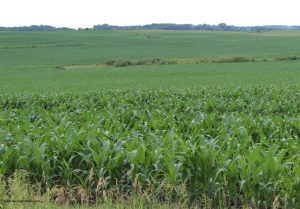Food and Water Watch has conducted a survey with the Organic Farmers’ Agency for Relationship Marketing that shows contamination from GMO (GE) crops is happening and affecting organic produce in farm fields around the country. The survey asked farmers in 17 states, primarily the Midwest, about contamination of organic and non-GMO farm fields with GMO crops.
 The survey found that “the risks and effects of GMO contamination have unfairly burdened organic and non-GMO farmers with extra work, longer hours, and financial insecurity, which has led to a general skepticism of coexistence amongst the organic community. Some even expressed the feeling that their chosen method of production is being seriously threatened.” GMO growers and producers aren’t require to mitigate the risk of contamination.
The survey found that “the risks and effects of GMO contamination have unfairly burdened organic and non-GMO farmers with extra work, longer hours, and financial insecurity, which has led to a general skepticism of coexistence amongst the organic community. Some even expressed the feeling that their chosen method of production is being seriously threatened.” GMO growers and producers aren’t require to mitigate the risk of contamination.
USDA Advisory Committee on Biotechnology and 21st Century Agriculture (AC21) established a “protocol” for coexistence and to design a compensation mechanism for losses sustained by non-GMO farmers. But their only suggestion was a form of crop insurance paid for by the organic farmers.
One of three farmers have dealt with GMO contamination on their farms. Of those farms, more than half have had crops rejected by buyers because they were contaminated. The median cost of a rejected semi load is about $4,500.00.
Over two-thirds of the responding farmers don’t think that good stewardship is enough to protect organic farms from contamination from GMO or GE crops, and five out of six farmers are concerned about GMO contamination on their own farms. Almost half of responding farms would not choose to purchase crop insurance to cover losses. Of those who would purchase insurance, three of four said that GMO patent holders and growers should bear the liability cost for economic loss to farmers that are associated with GMO contamination.
Wenonah Hauter, executive director of Food & Water Watch said in a statement, “If USDA really wanted to know if contamination was happening, all they had to do was ask organic grain producers who take great pains to keep their crops from being contaminated. Now USDA can no longer claim ignorance about this problem. The USDA’s focus on coexistence and crop insurance is misplaced.”




